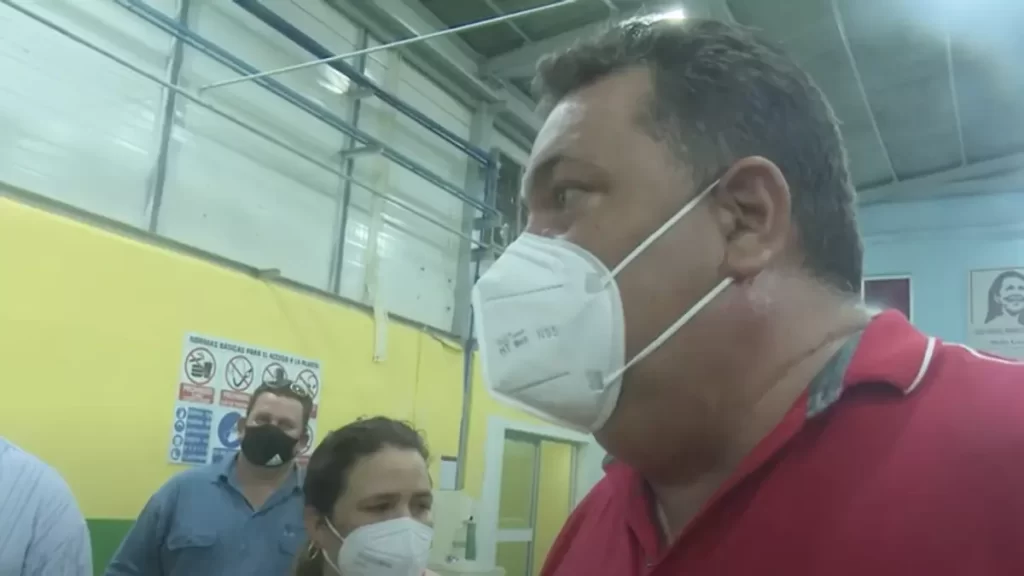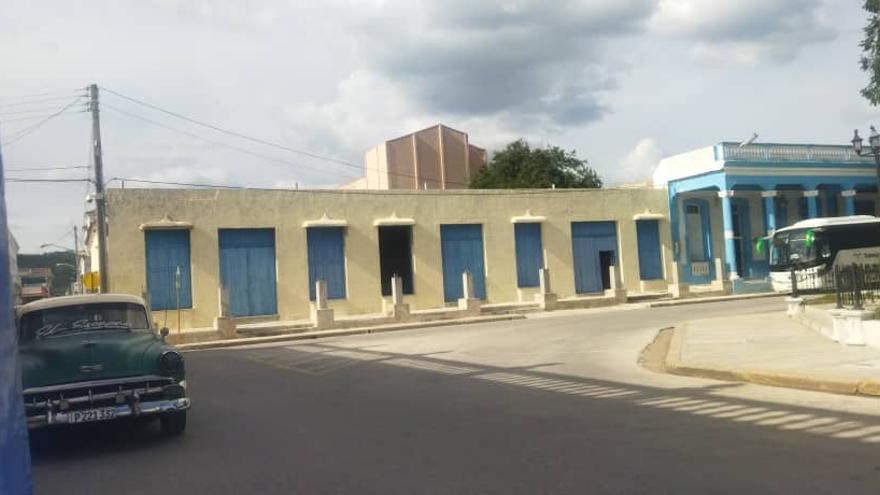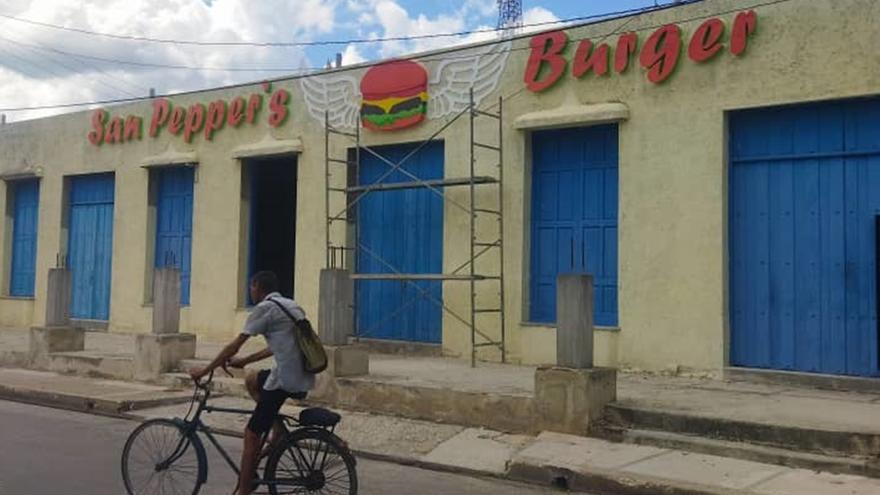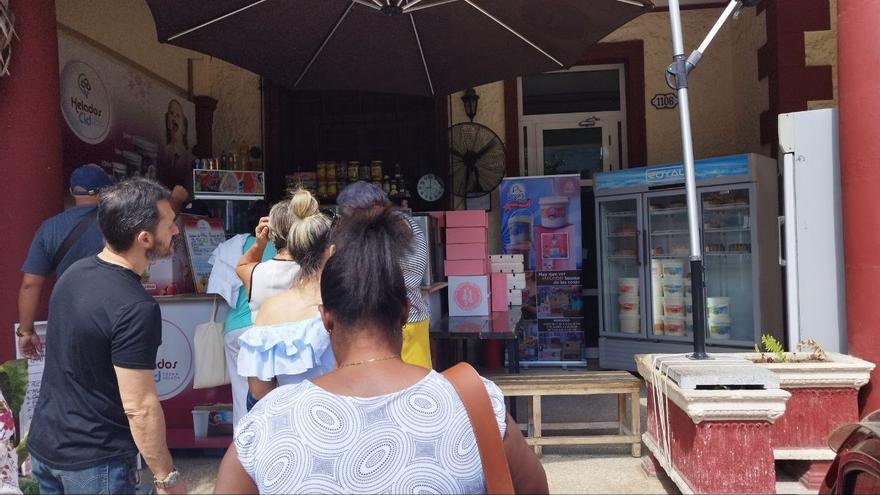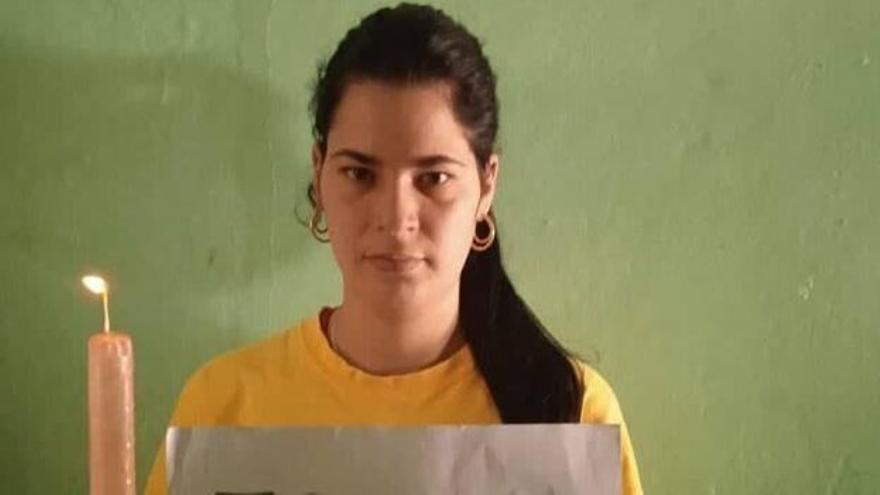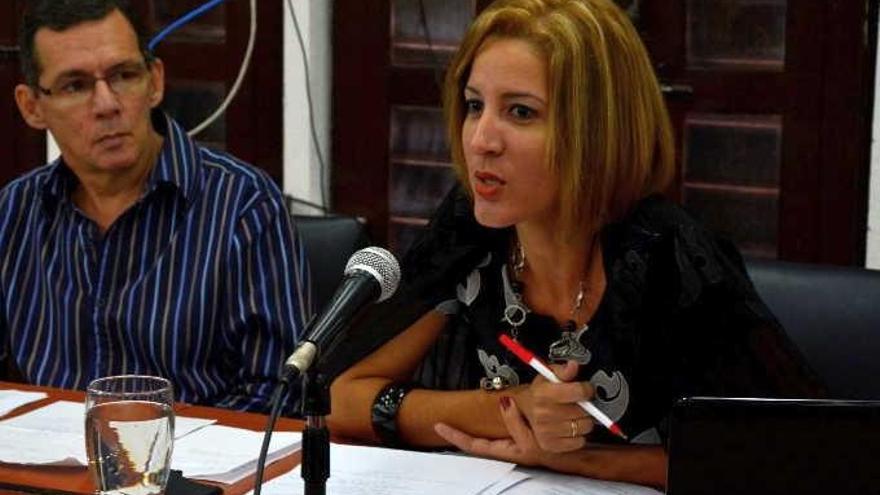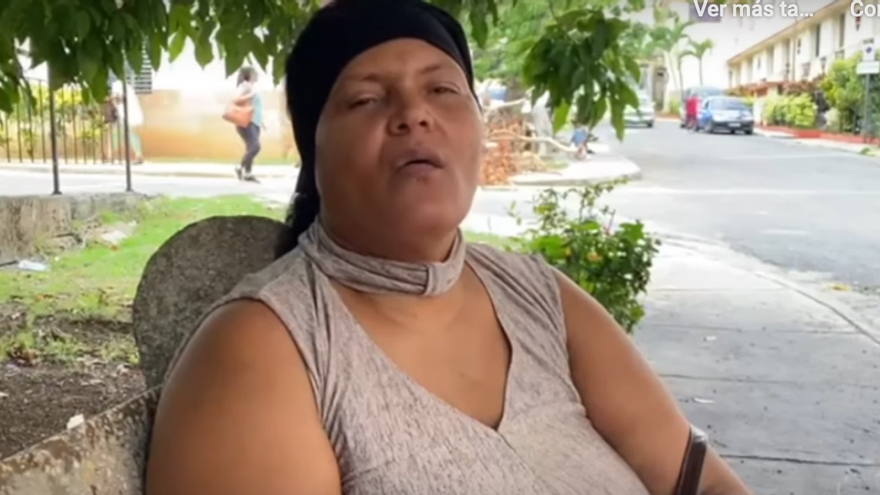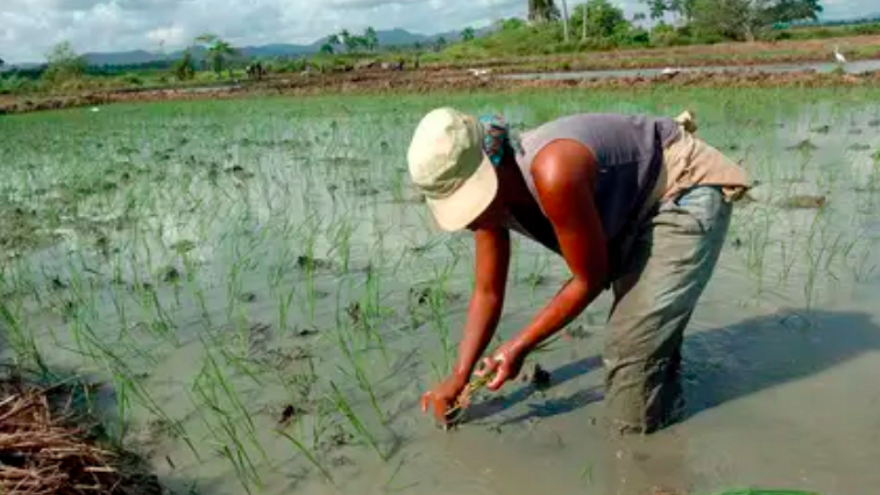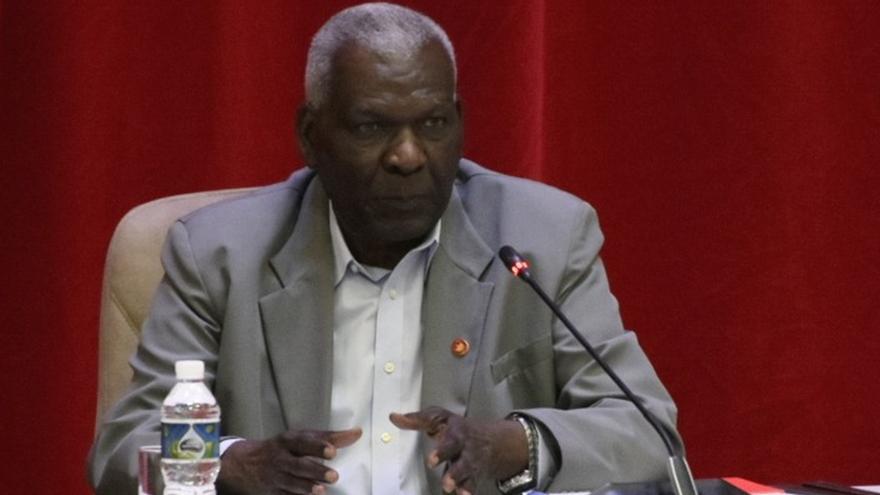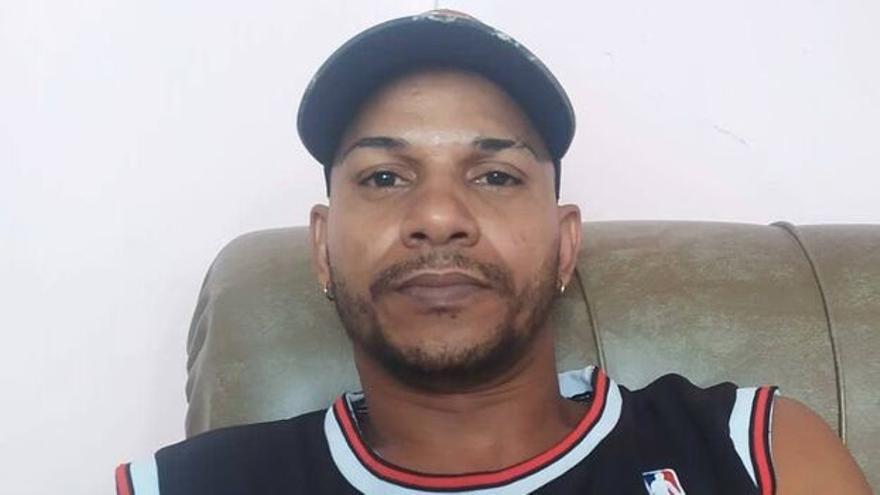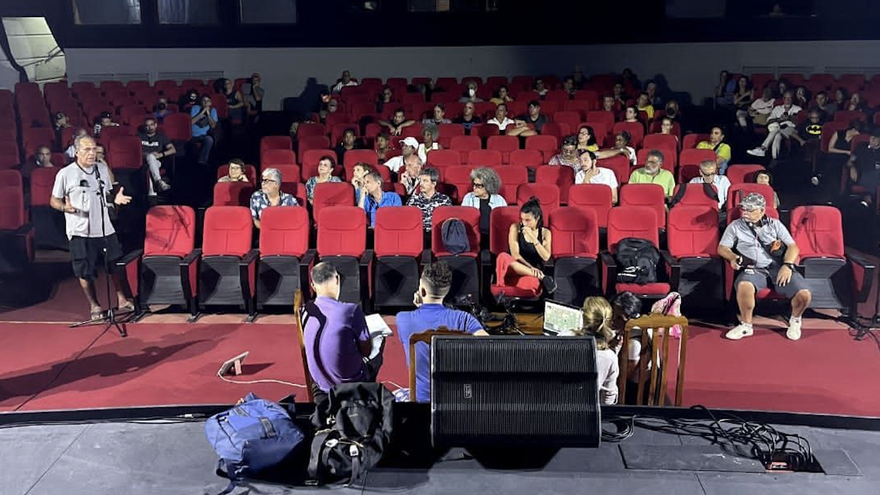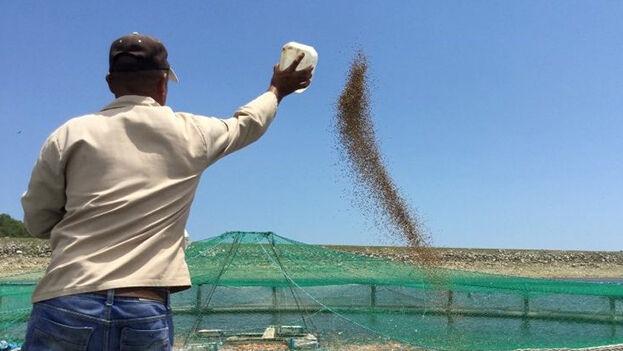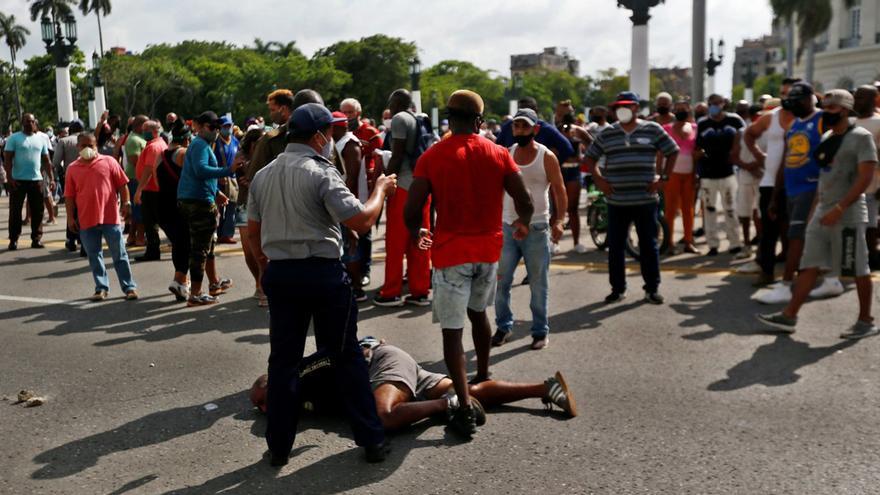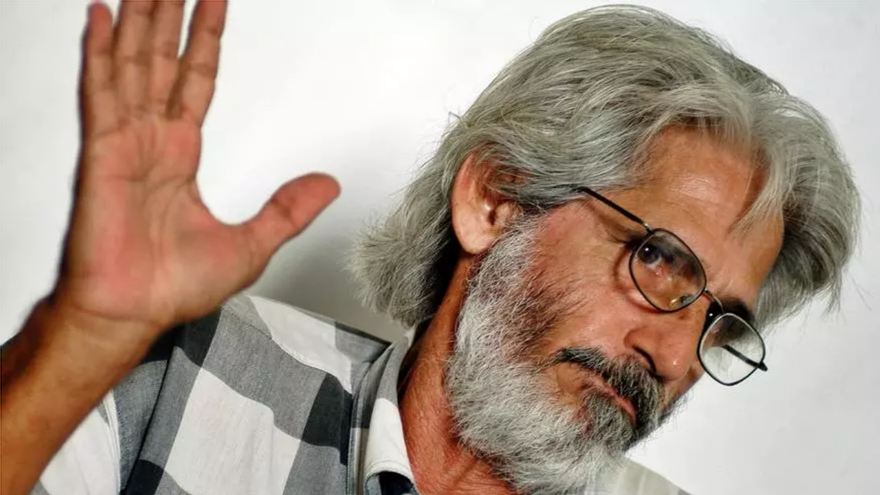Four officials participated in the program. The Minister of Food Industry, Manuel Santiago Sobrino; the Director of Food Industry Research, Jesús Lorenzo Rodríguez; the President of the Food Industry Business Group, Emerio González and the Vice Minister of Food Industry Midalys Naranjo. Each one spoke, without responding to the question all Cubans are asking, Why isn’t there any food?
The Minister of Food Industry stated, in the first place, that in the country’s development plan for 2030, food production is strategic for Cuba, and later recognized that the industry has been affected by the country’s current economic situation, which he attributed to the embargo/blockade. He did not take responsibility for a single thing. He spoke of the increase in international market prices in the last years and of the war in Europe as determinants of the increased food prices in Cuba, without once mentioning the person responsible for it all, the regime’s ally, Putin.
He ended by saying that the availability of electricity has affected the industry’s productifity, in a clear allusion to that branch minister, and even referenced the effects of climate change, specifically drought, as responsible for low production. continue reading
Secondly, the Minister said that the new economic actors have energized the sector and stated that, in the country, there are 844 micro, small, and medium private enterprises, of which 144 are bakeries and cake shops, 194 are meat producers, 188 produce preserves and 92 produce dairy products. He referenced the existence of 350 microindustries primarily in agriculture and in AZCUBA (sugar producers). Enough? Appropriate distribution? Sustainability? All doubtful.
Third, he referred to changes in the agricultural commerce introduced last year, establishing that contracts for these products within the industry should be producer-to-producer, a measure that has not been applied correctly, which affects the size of milk and meat contracts offered to producers. For that, he requested a changes in mentality, business concepts, and leadership structures, and a reliance on communication and information systems. That’s it? And who is responsible for inspiring and promoting change if not him?
Fourth, he referred to the Food Sovereignty and the Food and Nutrition Security Law, which according to him, provides the tools necessary for the Ministry of Food and other actors involved in food production. He recognized that people still cannot see the changes reflected at their tables, for which there are doubts about them. He is not of the same opinion as the UN World Food Programme which gave a stern warning to Cuba for its inflation.
The next one to speak was Jesús Lorenzo Rodrīguez, Director of Food Industry Research, who centered his remarkes on the results of scientific-technical activities within the sectot that, over the last 46 years, has developed 700 products, provided tools to all food processors, from product nutrient composition to the implementation of technical processes and the most efficient equiment. Where are those developments and what have been their results?
He spoke of research projects, such as flour production, training of local producers, to produce food to satisfy the population’s demand in terms of protein, fats, etc. And all that, without citing specific results, such as, for example, the 16 technical consultations. He cited some projects of major impact, all at the direction of the Council of Ministers (a political not technical decision) in the areas of Puerto Padre and Los Palacios. He cited, as if it were notable, the use of food industry sub-products, a practice that is widespread throughout the world and that reduces the environmental impact of waste. Finally, he signaled that currently, since the sugar shortage, the Ministry is working with AZCUBA to use sugar byproducts as sweeteners in other products.
After that, the president of the Food Industry Business Group, Emerio González spoke; he referenced last year’s structural reforms, with the creation of a group dedicated to agrifood activities to attend to the source of primary inputs for agriculture, dairy, meat, preserves, coffee; another fish industry group.
Among the group’s tasks is guaranteeing wheat flour, through the National Milling Company that produces and distributes wheat flour and also yeast and other inputs for bread production destined for the basic food basket and other consumption. The Roundtable participants dedicated their attention to flour and bread, because they know that the issue is worrisome for Cubans.
He explained that, with regard to this product, a very critical situation began in mid-2022 with the wheat supply and it has become more acute in the first six months of this year. To achieve stability in wheat production and traditional consumption within a month requires three shiploads of wheat valued at $35 million. In that regard, he signaled that in 2023 they’ve only managed to purchase four shiploads of wheat, the price of which has increased considerably and pointed to a product that is heavily affected by the blockade.
It’s all the same, the issues are due to the blockade and he cited the case of spare parts. There are four mills, with financing available, they have paid spare parts providers and their banks will not accept payment, but without these spare parts they can’t function. Well, search for them elsewhere. As of now, no one is going to gift them.
Despite the difficulties, the government does not give up bread production and has adopted several actions such as searching for flour and wheat in nearby regions to reduce the shipping time. According to the directors, two ships containing wheat flour have been contracted to arrive in the coming months, though the volume is not large, but two more ships containing wheat are also scheduled to arrive. With that, they can guarantee July and they are working on the contracts for August.
He also recognized that they have not been able to deliver flour to Cadena Cubana de Pan and that several economic actors have imported some flour and have participated in this supply chain. Furthermore, these supply chains are also achieving results in the confectionery industry. What he did not say is that to purchase and contract, they must pay debts, and in that regard, Cuba has bad, very bad data.
With regard to production of alcoholic beverages, he said that the decline in sugar production in Cuba has negatively impacted the sector. Nonetheless, he pointed to measures approved by AZCUBA as an opportunity to correct the situation. In addition, with AZCUBA they are conducting systematic checks on productive processes and to date they have been able to produce more than two million cases of rum, which will allow them to recover production.
Then, to speak of fisheries, the Vice Minister of Food Industry, Midalys Naranjo, surprised everyone by saying that although Cuba is surrounded by sea, its waters do not have the required levels of fish to satisfy the population’s demand. Since when does she have this information?
She explained that between 1976 and 1990 Cuba had a fishing fleet that operated in international waters and provided a portion of the fish consumed in the country (around 100,000 tons per year). However, since 1992 the fleet had to slowly withdraw from international waters, because it could not comply with fishing agreeents, which affected the availability of this food item in Cuba. Between 1986 and 2009, the country imported around 33,000 tons of fish products, which the Vice Minister said was not currently possible to maintain, because of the levels of financing required.
As a result, the regime decided that fish should be based on aquaculture in Cuba, with a program that includes all the provinces in the country. Among products, developed extensively, because intensive aquaculture demands high volume of feed for the fish, which is not currently available. Production of cyprinids (what is commonly known as tench) is one of the most common, although it requires around 18 months to achieve a commercial size fish. Furthermore, there are new economic actors in this activity. There are, for example 485 private producers with around 1,546 hectares under production. It is not a private initiative. They are tenants who do not own the means of production.
The Vice Minister referred to some difficulties in aquaculture, such as the effects of climate change (especially drought and heavy rains), the timeline for producing marketable fish and limited fishery capacity at the moment. With regard to the latter, she informed that the shipments contained inputs for fisheries.
After that, she referred to the Fisheries Law of 2019, which according to her, was debated in fishing communities who offered suggestions; were evaluated and it wasn’t until four years later that they were taken into consideration to supposedly ease the norms. Haven’t they had enough time? In essence, there is a working group charged with revising the legal norms that support the law; it has drafted proposals to develop fishing activities which have been approved by the Executive Committee of the Council of Ministers.
Among the reforms, they discussed gradually creating conditions in all regions for the wholesale and retail of fishing supplies, offering construction and boat repair services, allowing commercial fishing between August and January in areas declared as preferential to tourism for a period of two years, modifying navigation area three C. Currently the following have been approved: navigating up to 12 miles, an increase in the size of motors to seventy horsepower, a revision to the plans for managing protected areas, declaring fishing bases such as fishing ports as areas of local interest and facilitating fish commerce, applying the sales and pricing concepts in accordance with all products and economic actors. Note this last one.
Resolution 52 was approved in October 2022 precisely for this reason, which already applies; it states that commercial fishermen are not required to have a contract with a state entity and can sell products directly. That resulted in an increase in the sale of non-state commercial licenses, which reached 4,042 licenses at the end of May, a much larger number than in 2022.
She clarified that the prior measures were being implemented and that in the next few months they should allow a greater level of easing of fishing activities, which will be well received by fishermen. That remains to be seen. Hopefully all this will result in greater production and consumption of fish, but it does not seem probable. The right to property continues to be untouchable.
At the end of the event, the Minister broached the situation of the basic food basket, the products it comprises and its current situation. A topic of interest for the population.
His remarks addressed what he called challenges in food packaging, safety and quality. Specifically, the bread, in addition to the issues with raw materials, the quality of this product is influenced by the lack of quality control in places where there have not been enough requirements in place.
He later referred to the complex situation of the products that make up the basic food basket, practically all of them.
Of powdered milk he said that to ensure consumption within the country they rely on small imports from Latin America and the Caribbean, which he acknowledged, do not satisfy demand. Regarding oil, he acknowledged they owe consumers one months’ supply [as a part of the rationed goods], but said that it is in the country aboard a ship with enough inventory to satisy demand for two months and assured that oil distribution to the population would begin in the coming days. With regard to baby food, with a difficult situation at the beginning of the year, it seems that the raw materials for its production are now available and it is currently being distributed.
About coffee, he said they are finishing up distribution of the supply for May’s basic food basket, which can be guaranteed with domestic raw materials. He then said something surprising: from now on, coffee production will depend on what can be imported because domestic production can no longer cover these months. With regard to chicken included in the basic food basket he said distribution will begin any day but only for a portion of the population and he assured that in July and August distribution of this product in the rationed basket will improve. About other meats, he said that in the coming days a ship should arrive at a Cuban port carrying raw materials and inventory for two months, designated for production of food items such as ground beef and ham. With regard to soy products, he said the picture is complex due to a shortage of products on the international market and only said that they are working on a timely solution.
After this story, certainly dramatic, he said that a government-driven program is underway to improve the situation this summer, with products such as beer, soft drinks, ice cream and candies. Curiously, these have experienced declines in inflation during the month of May.
He announced that in the coming days more than five foreign capital investment projects and two domestically funded projects will be functioning, which should improve the consumption scenario. Among these are factories for crackers, candies and coffee; as well as a brewery in Mariel; a candy factory in Caibarién, Villa Clara; the launch of the chocolate factory in Baracoa; the expansion of production in the Bucanero brewery; among others.
An extensive event. Anything less would not do. Without a doubt, the topics covered deserved it. The audience that put up with the program up to this point went to bed with the same sensation of misfortune. Even worse, feeling they had been fooled once again.
Translated by: Silvia Suárez
____________
COLLABORATE WITH OUR WORK: The 14ymedio team is committed to practicing serious journalism that reflects Cuba’s reality in all its depth. Thank you for joining us on this long journey. We invite you to continue supporting us by becoming a member of 14ymedio now. Together we can continue transforming journalism in Cuba.

![]() 14ymedio, Xavier Carbonell, Salamanca, 6 March 2024 — Carlos Lechuga Hevia was a machine for the Revolution. His grandfather, Colonel Manuel Lechuga was a machine for Independence. What type of machine is his grandson, Carlos D. Lechuga? His first last name is barely a letter, an elipsis, interfering with the nice ring of the clan name. Lechuga Hevia, red aristocrat, Castro’s ambassador in New York during the Cuban Missile Crisis, returns as a ghost to settle scores with his grandson for converting him into a fictional character and stealing — for the title of his book — the golden rule of communist hospitality: This is your house, Fidel. You better run, D. Lechuga.
14ymedio, Xavier Carbonell, Salamanca, 6 March 2024 — Carlos Lechuga Hevia was a machine for the Revolution. His grandfather, Colonel Manuel Lechuga was a machine for Independence. What type of machine is his grandson, Carlos D. Lechuga? His first last name is barely a letter, an elipsis, interfering with the nice ring of the clan name. Lechuga Hevia, red aristocrat, Castro’s ambassador in New York during the Cuban Missile Crisis, returns as a ghost to settle scores with his grandson for converting him into a fictional character and stealing — for the title of his book — the golden rule of communist hospitality: This is your house, Fidel. You better run, D. Lechuga.
